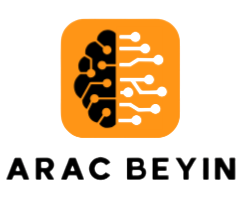Data breaches and heavy penalties make headlines, so support teams require privacy law expertise as well as technological skills. The www.itgoat.com has realized that compliance begins with the help-desk ticket because support staff handle customer data daily. A negligent click can disclose sensitive data in remote-desktop sessions and log aggregation. Knowing the laws protects clients, trust, and providers from liability. The sections below highlight the most important laws and provide specific strategies to comply with authorities.
GDPR Fundamentals
Europe’s GDPR sets worldwide privacy standards. IT professionals worldwide may be subject to it when serving EU residents, even if the data is on non-EU servers. Takeaways include:
- From IP addresses to HR records, personal data identifies live people.
- Processing begins with a legal basis—consent, contract, legitimate interest, etc.
- Data subjects have absolute rights to view, correct, delete, and port their data.
- Authorities must receive breach alerts within 72 hours and affected users “without undue delay.”
Log user requests, encrypt exports, and automate delete timelines in help-desk procedures. Routine audits keep ticket notes, screenshots, and diagnostic uploads within policy.

Navigating CCPA and US State Regulations
California’s Consumer Privacy Act, updated by CPRA, sparked a wave of US state laws that parallel the GDPR but have different enforcement strategies. Support providers for Americans must:
- Record geolocation, in-app behavior, biometric scans, etc.
- Provide a simple “Do Not Sell or Share My Info” option on customer portals.
- Comply with confirmed customer requests within 45 days, extended for difficult circumstances.
- Check vendor contracts for “service provider” terms banning secondary data use.
HIPAA Health Data Support Obligations
HIPAA’s Security and Privacy Rules apply to help-desks that handle PHI. Instances include EHR login difficulties, backup restoration, and medical-device log analysis. Needs are about:
- Business Associate Agreements before PHI access.
- Access control by role; technicians should only see the records needed to fix the problem.
- Storage, remote sessions, and email threads encrypted end-to-end.
- Full audit trails of file views and changes.
Establishing Compliance Culture
Technology alone cannot guarantee privacy; employee habits matter too. IT leaders can promote compliance-firstness by:
Meeting quarterly to review new laws.
- Adding privacy checkpoints to change-management templates.
- Awarding technicians who discover and report violations early.
- Ensuring a visible “request tracker” dashboard to catch all consumer inquiries.
Conclusion
Regulators focus on service providers because help desks handle data at its most vulnerable—when it is malfunctioning and requires fixing. Mastering GDPR, CCPA, HIPAA, and transfer frameworks helps teams solve problems quickly without harming consumers. Privacy-integrated tools, ticketing, and team culture earn customer loyalty and prevent costly punishments, according to www.itgoat.com and many other privacy-conscious firms.




